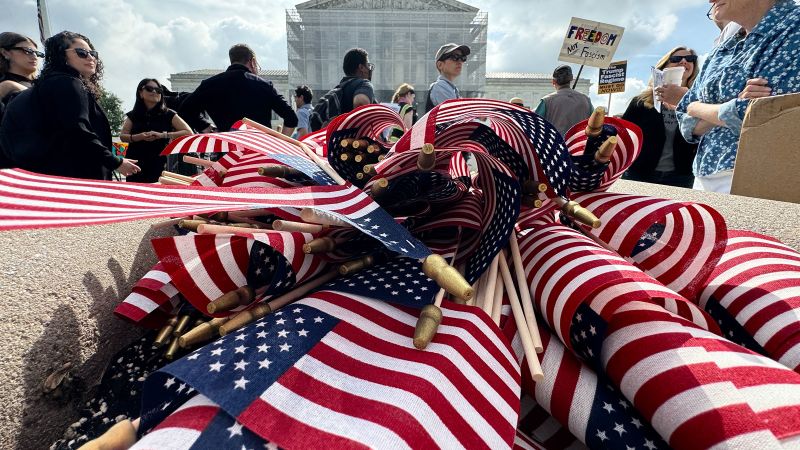On Thursday, the Supreme Court engaged in a critical discussion regarding President Donald Trump’s controversial birthright citizenship policy. The justices appeared to be open to potentially lifting a series of nationwide injunctions that have previously blocked the enforcement of this policy. However, they grappled with the profound implications of granting the government the authority to deny citizenship to children born on U.S. soil. This debate raises significant constitutional questions, particularly regarding the interpretation of the 14th Amendment, which guarantees citizenship to all individuals born in the United States.
During over two hours of arguments, the justices seemed divided, struggling to determine how they might balance the competing interests surrounding this complex issue. Several conservative justices hinted that those challenging Trump’s orders may opt for different types of legal actions to halt the implementation of the policy. Meanwhile, other justices indicated that the court might be willing to expedite its review of Trump’s executive order, citing concerns that lower court judges have too readily blocked presidential policies with insufficient scrutiny.
Justice Brett Kavanaugh emerged as a vocal proponent during the arguments, suggesting that class-action lawsuits could provide an effective means for challengers to secure broad relief against Trump’s executive order. He dismissed arguments from challengers indicating that class certification poses similar challenges to the nationwide injunctions that are currently under discussion. Kavanaugh’s remarks seemed to underscore the notion that there are alternative pathways for those contesting the order to seek immediate relief from the courts. Chief Justice John Roberts, though more reserved throughout the proceedings, emphasized the potential for the judicial system to expedite cases like this, signaling the court’s readiness to address the matter efficiently.
The question of how class-action lawsuits could reshape the landscape of this legal battle was central to the discussions. Once judges certify a class, they must thoroughly consider who would be affected by any ruling, complicating the path to halting the policy. Nevertheless, advocates from the Trump administration suggested that class-action lawsuits represent the appropriate avenue for courts to issue broad halting orders against presidential directives that might violate constitutional rights.
The justices interrogated Solicitor General D. John Sauer regarding the administration’s potential counteractions against any requests for class certification. Throughout these inquiries, concerns about the ramifications of rolling back nationwide injunctions surfaced. Justice Ketanji Brown Jackson expressed skepticism about whether rejecting a universal injunction could inadvertently require individuals to initiate separate lawsuits, which might lead to a chaotic legal environment.
Barrett, in a critical line of questioning, pressed Sauer for reasons the government was sidestepping the underlying merits of the birthright citizenship case. Sauer’s conceding statement acknowledging that the legal arguments surrounding Trump’s policy are “novel” and “sensitive” indicated an awareness of the precariousness inherent in their position. This exploration unveiled a tension between the administration’s strategy and the legal viability of its arguments.
The court’s dialogue reflected an ongoing struggle to delineate the nature of the case: whether it genuinely revolves around judicial power and the authority of lower courts to contest presidential actions, or if it centers more on the practical implications of allowing the current administration’s policies to come into effect. This tension necessitated a thorough examination of both constitutional principles and their real-world applications.
As the justices tackled these significant issues, it became apparent that the resolution could take months, especially given the complexities involved in the birthright citizenship debate. The court, which recently dealt with an emergency case related to environmental regulations, had taken several months to conclude that matter. This history raises questions about how promptly the Supreme Court will deliver its verdict on such a crucial constitutional question, particularly in light of its potential impact on numerous individuals and the broader landscape of American citizenship law. The next month might yield critical developments as the court nears the conclusion of its term, delivering its opinions on a matter with profound implications for the future of citizenship in the United States.



